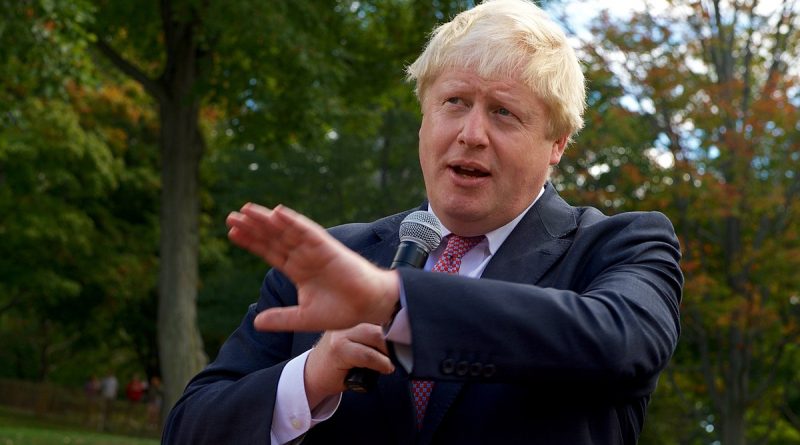“Partygate” Covers Up Deeper Problems Within UK Media
Andrea Gonzalez
Staff Writer
In November of 2021, a series of rumors about social gatherings at Downing Street, the home and office of British Prime Minister Boris Johnson, set off a spiraling crisis that put his career in jeopardy. According to Foreign Policy, Johnson’s residence hosted over a dozen gatherings with more than 100 staff. At the same time, COVID-19 restrictions kept working class Britons from “mixing, visiting elderly relatives, or attending the funerals of loved ones.” The latest scandal has the potential to sweep away voters from the Conservative Party and sink the Prime Minister’s political career. Still, other factors jeopardize the Conservative front, and ‘Partygate’ may be the only thing that keeps the public from looking deeper.
The UK has been facing a troubling economic downturn since leaving the European Union in January of 2021, exacerbated by COVID-19 setbacks. Issues in the labor force, increasing oil prices, higher electricity bills, and empty grocery store aisles lowered the living standard of many Britons. Furthermore, in October of 2021, the prime minister’s plans to increase the National Insurance Tax were met with opposition from both the Labour Party and lawmakers from his own Conservative front. Opponents claim a tax increase would betray his initial vow to voters in 2019. As economic complications compromise voters, ‘Partygate’ puts another strain on Conservatives for future elections. If the Civil Servant’s investigation determines that Johnson’s behavior was, in fact, harmful and proves his culpability, then it may be only a matter of time before Conservatives oust him to prevent further disillusionment with their base.
The Metropolitan police requested that Civil Servant Sue Gray, who is leading the investigation, use minimal details in the public report to avoid “prejudice” and wavering public opinion about the events. The report includes various quotes from Johnson’s press briefing in which he apologized and promised to fix the conduct of his office, reports Al Jazeera. Nevertheless, the investigation is still in the hands of the Prime Minister, who has the potential to veto any investigation into his office and its affairs, according to The Guardian. If Johnson vetoes the investigation, it will exhibit his lack of concern for state-imposed safety measures, while highlighting the backwards foundation of the structure of British government.
But the aforementioned economic concerns the UK is facing are being overshadowed by pack-journalism more concerned with electric headlines than substantial reporting. Last April, while Queen Elizabeth II mourned her late husband, media attention shifted to an alleged governmental gathering that occurred the night before. In turn, images of the grieving Queen were juxtaposed with more than three hundred images from the government sponsored “bring your own booze work event,” leading Johnson to offer a public apology to the country after initially rejecting the accusations. In anticipation of the release of the Gray investigation, the prime minister told reporters that “I have learned enough to know that there were things we simply did not get right.” However, the apology did little to appease citizens and elected officials questioning his judgment and integrity and gave hungry journalists a perfect excuse to hyperfocus on the issue. Pushing the court of public opinion towards a campaign against Johnson’s character, rather than highlighting the issues that affect the lives of the average Britons, has undoubtedly been detrimental to the journalistic credibility of media outlets in the state.
In a scholarly article citing systematic issues with British broadcasters and editorial boards, Oxford Professor Bill Dutton criticized the lack of a “diverse array of stories” that has only worsened with ‘Partygate.’ Dutton explains that coverage of world events has been “marginalized” by the endless televised testimonials of individuals and parliament members expressing how they feel about the incident. Others, including British historian Sir Anthony Seldon in an interview with BBC News, focus on the unusual circumstances of the Prime Minister’s situation. Though he has recovered from past public scrutiny, the Prime Minister must rapidly rebuild his relationship with his constituents and his Cabinet, as lawmakers are not afraid to use their power to remove him from office via a Vote of No Confidence.
Salvaging his tenure as Prime Minister will require Johnson to face the weakening foundation of his office. The PM needs forgiveness and an economic plan to prove that he is still worthy of the title and whatever credibility he has left. Meanwhile, the future of journalism in the UK must examine if ‘Partygate’ is an event worth fixating on at the expense of substantial investigations into the financial health of the state. Striving for a better Britain that shares pain and success should be a responsibility, not for the Prime Minister but those whose platform allows them to enter the homes and minds of the people.



